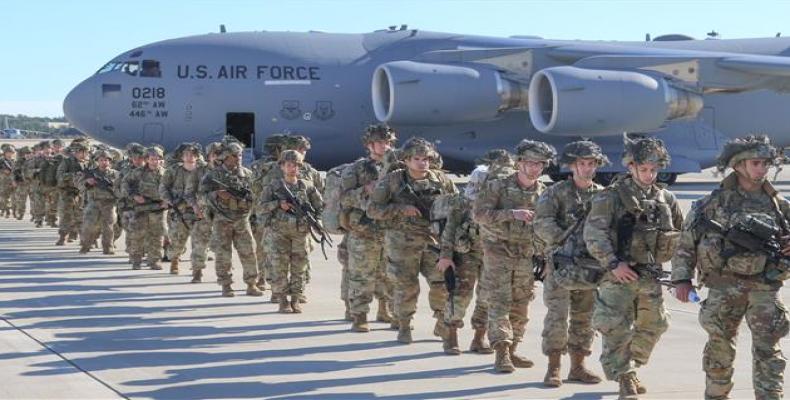Washington, January 3 (RHC)-- The United States is sending nearly 3,000 additional troops to the Middle East from the 82nd Airborne Division as a precaution amid rising threats to American forces in the region, US officials have said. The move comes after U.S. President Donald Trump ordered the killing of Iranian military commander Qassem Soleimani.
General Soleimani, the head of Iran's elite Quds Force, was killed by U.S. forces in an air raid at Baghdad International Airport early on Friday. Abu Mahdi al-Muhandis, the deputy commander of Iran-backed militias known as the Popular Mobilisation Forces (PMF) was also killed. Iran has threatened harsh retaliation.
U.S. officials have tried to defend the move, saying Iran was planning imminent action that threatened American citizens. He has not elaborated on the details of any plan.
The additional troops would be joining the roughly 750 forces that were sent to Kuwait earlier this week, according to officials, speaking to news agencies on the condition of anonymity. Those troops were deployed after protesters stormed the U.S. embassy compound in the Iraqi capital.
U.S. officials told Reuters News Agency earlier this week that thousands of additional troops could be sent to the region and had been told to prepare to deploy. The deployment of extra troops reflects concern about potential Iranian retaliatory action for the assassination of Soleimani. But it also runs counter to Trump's repeated push to extract the U.S. from Middle East conflicts. Prior to this week's troop deployments, the administration had sent 14,000 additional troops to the Middle East since May, when it first publicly claimed Iran was planning attacks on U.S. interests.
The reinforcements took shape as Trump gave his first comments on the attack, declaring that he ordered the killing of Soleimani because he had killed and wounded many Americans over the years and was plotting to kill many more. "He should have been taken out many years ago," the Donald added.
The assassination marked a major escalation in the conflict between Washington and Iran, as Iran promised "harsh retaliation" for the killing of the senior military leader. The two nations have faced repeated crises since Trump withdrew from the 2015 nuclear deal and imposed crippling sanctions.
The U.S. urged its citizens to leave Iraq "immediately" as fears mounted that the attack and any retaliation by Iran could ignite a conflict that engulfs the region.


